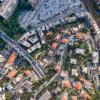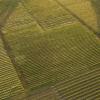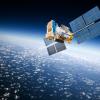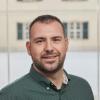ASA Program aims to discover, develop, and deploy new, more effective, and efficient ways of infusing systems science into policy and decision making for sustainable development.
Despite numerous success stories, many policies and decisions that currently aim to deal with global change are not sufficiently informed by cutting-edge science. Among the major barriers that prevent the effective input of science into policy are perceived shortfalls in agility, realism, and relevance of the current generation of methods and models from the standpoint of end users. To address these barriers, ASA strives to advance agile, realistic, and relevant systems analytical tools and methods, and facilitate a shared understanding of the capabilities and limits of these tools and methods with end users. Consequently, ASA’s efforts span the full range, from advancing research methods and tools of systems analysis to innovating at the interface between policy- and decision making, as well as with society at large.
ASA Program’s major objectives are:
- To innovate approaches and tools to analyze increasingly systemic, social-ecological risks and support decisions aimed at enhancing resilience and facilitating sustainability transitions and transformations.
- To further the capacity of agile, on-demand systems analysis underpinned by a suite of modeling frameworks of appropriate complexity.
- To mobilize multiple sources of data and the power of data science to diagnose and identify solutions to reduce vulnerabilities and risks.
- To advance feasible and effective ways of engagement with policymakers, the private sector, and citizens.
- To enhance trust and shared understanding of systems analysis methods and tools, in particular, through open science.
Projects
Staff
News
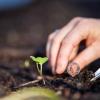
14 May 2024
Study confirms giant store of global soil carbon and highlights its dynamic nature
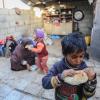
13 May 2024
Analyzing the underlying causes of the food crisis in Gaza
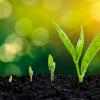
02 April 2024
CROPS: a new EU-funded project to grow citizen science in Europe
Events
Focus
29 April 2024
Food insecurity in the Gaza Strip: An urgent priority with deep roots
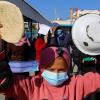
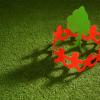
11 April 2024
Breaking boundaries through citizen science
The way we do science has come a long way—from having only experts work on scientific projects, to where many projects now also include members of the public as participants. This change is thanks to citizen science, which creates opportunities for science to be taken to the next level.
Publications
Feichtinger, G. & Wrzaczek, S. (2024). The optimal momentum of population growth and decline. Theoretical Population Biology 155 51-66. 10.1016/j.tpb.2023.12.002. Zelingher, R. & Makowski, D. (2024). Investigating and forecasting the impact of crop production shocks on global commodity prices. Environmental Research Letters 19 (1) e014026. 10.1088/1748-9326/ad0dda. Sakic Trogrlic, R., Reiter, K., Ciurean, R.L., Gottardo, S., Torresan, S., Daloz, A., Ma, L., Padrón Fumero, N., Tatman, S., Hochrainer-Stigler, S., de Ruiter, M.C., Schlumberger, J., Harris, R., Garcia-Gonzalez, S., García-Vaquero, M., Arévalo, T., Hernandez-Martin, R., Mendoza-Jimenez, J., Ferrario, D., Geurts, D., Stuparu, D., Tiggeloven, T., Duncan, M., & Ward, P. (2024). Challenges in assessing and managing multi-hazard risks: A European stakeholders perspective. Environmental Science & Policy 157 e103774. 10.1016/j.envsci.2024.103774. Feichtinger, G., Grass, D., Kort, P.M., Novak, A.J., Seidl, A., & Wrzaczek, S. (2024). How Hartl exceeds Skiba: determinants of a successful career in academia. Central European Journal of Operations Research 32 (2) 543-556. 10.1007/s10100-023-00889-7.

